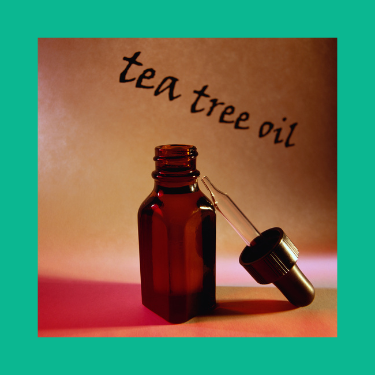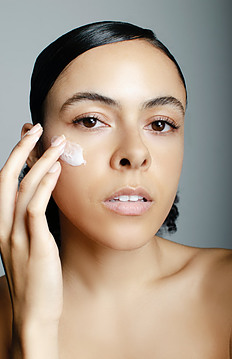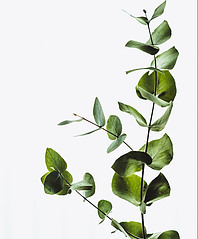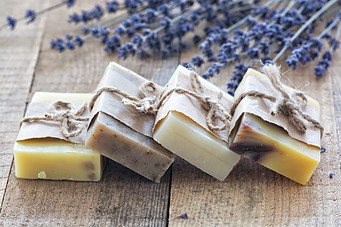Essential Oil Basics – What Tea Tree Oil Can Be Used For
Essential oils are real beneficial sources of better health for every one. In this article, I want to examine the many uses of tea oil – what tea tree oil can be used for, what it is, and where it is obtained. Tea tree oil is one of the essential oils you probably never heard of but is the miracle that keeps on giving.
Where does Tea Tree Oil Come from?
Tea tree oil comes from the Australian tea tree – an evergreen shrub or small tree that originates – as you guessed it – from Australia. The plant typically grows in twisted fashion from 15 to 25 feet in height. The leaves of the tree are the source of this essential oil.
Typically, tea tree oil is produced by steaming the leaves and distilling the oil for commercial use. Tea tree oil is found in many useful products such as cleansers, creams, lotions and many natural household scents and cleaning products. You can purchase the essential oil itself and use it for various applications. As with all types of essential oils, use precautions in the application of the product as with other types of essential oils, it can cause skin irritations in certain people and is not designed to be taken internally or swallowed.
What Types of Properties Does Tea Tree Oil Have?
The fantastic fact about tea tree oil is that it is famous for its antibacterial and antimicrobial properties. One of the uses for tea tree oil is the treatment of fungus conditions such as athlete’s foot or nail fungus. Some medicines may contain it because of its properties – look at the label on some medicines you use and you may just find it as a natural ingredient.
Shampoos often contain tea tree oil as it is a great treatment for scalp dandruff. It can help with the dry flaky skin that results from dandruff and help to condition the scalp.
Another use of tea tree oil is in home products. The slightly pine scent the oil gives makes it great for scenting natural based home products and is a perfect way to naturally scent your home. You can use it in a diffuser to scent a room in your home (probably a lot better than artificial scent products you purchase at the store), add it to cleansers you make for your home, or look for natural cleansers that contain it to help clean your home.
Here’s a little transparency: Our website contains affiliate links. This means if you click and make a purchase, we may receive a small commission. Don’t worry, there’s no extra cost to you. It’s a simple way you can support our mission to bring you quality content.”
It Can be Used to Treat Acne
Many acne sufferers use tea tree oil to help with their skin maladies. As it has antibacterial properties, it can kill bacteria that make acne worse.
Many acne cleansers contain tea tree oil in their formulations. If you want to use it for personal to treat your own condition, do a bit of research online and experiment with it yourself as it is a natural alternative to other products that may be harsher.
You Can Make Recipes With Tea Tree Oil Just As With Any Essential Oil
Tea tree oil is often mixed with lavender oil and a carrier oil in many recipes for personal use products. You can make a hand sanitizer using a recipe to kill germs and bacteria naturally. Bath bombs and bath mineral salts can include tea tree oil in the recipe. As an aromatic, the scent is simply invigorating.
Adding small amounts to moisturizers, grease lubricants and such can be done. Again, be careful not get it in your eyes or to use it in sensitive areas of your body as it can cause irritation if not used properly. I like to use it in various applications myself and recommend it as an essential oil that you can use on a daily basis.
Another use is to fight odors from bacteria. A good example of this maybe where you sweat and have resulting bacterial odor. You can create natural deodorizers from natural ingredients or use deodorants that include tea tree oil as a natural ingredient to fight body odor.
A Natural Anitiseptic
Tea tree oil can be used as a natural antiseptic to treat small injuries. The properties of the oil make it a great component for applying to these types of wounds. You can find over the counter ointments and topical applications that contain tea tree oil.
Some people use tea tree oil as a mouthwash because of these properties. A few drops in a glass of water can be safely used as a rinse or gargle to fight germs. Do not swallow, make sure you spit it out after use.
A Few Precautions You Should Use With Tea Tree Oil
Using tea tree oil can cause skin irritation, redness, burning and certain reactions with some people. You should try it on small portion of skin to see if you have a reaction to it before beginning use. If at any time, you have a reaction to it, seek medical help. Don’t swallow tea tree oil or try to use it internally.
When using tea tree oil in cleansers, use small amounts. As with other essential oils, a little goes a long way. Think in terms of using drops when making your formulations.
Other Uses
Creams or ointments containing tea tree oil are often used to treat fungus infections as mentioned earlier. Target areas are often treated once or twice daily to treat the affected area. Tea tree oil can be a good ally in helping to treat nail fungus.
Another not so common use aforementioned is the use of tea tree oil in formulations to treat lice egg infestations. Generally, it is effective and pretty much safe as a topical agent when used in this manner.
Summing It All Up
Tea tree oil is one of nature’s most useful essential oils most people don’t know about or use. Derived from the leaves of the Australian tea tree, it contains some powerful properties.
Topical use of tea tree oil is safe when used in small quantities. As with any essential oil, do your research when making recipes for your own personal use and practice safe common sense precautions when using it.
As an antibacterial and antimicrobial agent, tea tree oil ointment can work wonders. When in doubt about its use or if you have reactions to it, consult a medical professional for help. Using tea tree oil on a daily basis can be an ally in finding a natural product to replace other harmful substances in your home.









This is a very interesting article on tea tree oil and the many different uses. I knew it has antibacterial properties, but not that it comes from the Australian tea tree and specifically the leaves.
It is really helpful to know that tea tree oil can be used for nail fungus. How would you apply it? Does one rub it into the skin around the nail, or does one need to put some of the oil under the nail? Is it then best to cover the finger that one does not accidentally get any of the oil onto food and ingest it? Thank you for advising.
You can do it two ways. The first is to apply a few drops to a cotton swab and then apply that to the affected nail for a few minutes. You can also add the oil to a foot soak by mixing it with a carrier oil such as fractionated coconut oil – you can then add the mixture to the salt you are using for your foot soak and soak your feet. If using the foot soak, you probably need to dry the feet well after soaking.
Remember you will be using a few drops of oil at a time, likely from a bottle for application. Washing your hands if they contact with the oil will prevent food contamination.
Learning about Tea Tree Oil has proven enlightening. I have heard of a number of essential oils, but this is the first for this oil. Seeing the word ‘Tea’, I automatically thought of steeping a cup. I am glad the article warned against ingesting. Can this oil be used without any type of carrier oil? Am I clear in understanding that it only takes two or three drops in most mixtures?
Yes, in small amounts. As with any type of oil, try a small amount on your skin first to check for irritation.
Hello, thanks for providing this great piece of information. Tea tree oil is generally safe for topical use and can help treat acne, dandruff, athlete’s foot, and lice when used correctly. It’s toxic if ingested and can cause skin irritation, allergic reactions, and other side effects. Tea tree oil shouldn’t be used orally and should be avoided if you have eczema. It was very helpful.